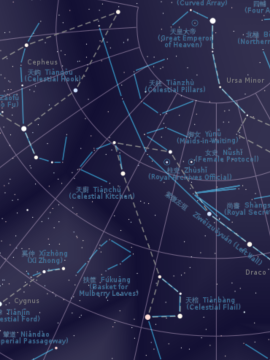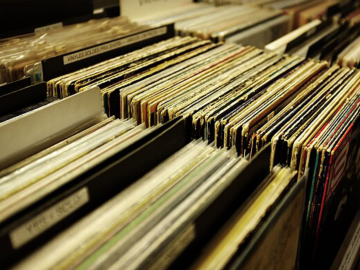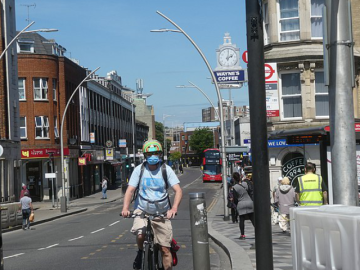Prosection
Joanne Anderton
I start cleaning the house the day my husband moves out. I’ve never broken up with someone before, so I don’t know how to react, and cleaning’s the only thing I can think of doing. I put on my headphones and turn the music up loud. The cats wander aimless and confused as I sort fifteen years of accumulated junk into three distinct piles: throw, keep, donate. Gifted crockery sets I’m never going to use go to St Vinnies. So do the well-worn DVD box sets, and my mother-in-law’s crystal glassware, which I’m surprised he didn’t take with him.
And then I stumble on a human skull lying forgotten amidst the flotsam. Is it strange to open a small cardboard box and look down at those empty sockets and think I know how you feel, buddy?
*
I’d forgotten the skull was there. Quiet in his cardboard box on top of the piano in the downstairs music room no-one uses any more. I keep calling the skull he, but the gender is unknown. It feels disrespectful to call him it. He’s missing teeth, his jaw is askew, and the top of his head has been sawn off. It can be reconnected with small metal hooks. He’s lighter then you’d expect; the bone feels fragile. He’s not symmetrical, not like a drawing or model. The hole where his nose was is a funny lopsided shape and one eye is higher than the other. He’s off-white, yellowish.
But no-one’s perfect.
*
My husband was still trying to be an artist when Dad brought the skull home from university. A researcher and lecturer in optometry, Dad required anatomical drawings of eye sockets for a forthcoming publication. He commissioned them from his struggling son-in-law, and borrowed the skull to use as a model. My husband’s artistic career did not survive long. I lost track of the skull after that. It seems we all did.
When I mention finding the skull to Dad he’s concerned. ‘I thought I returned that.’ Lying in his reclining chair, he’s just woken up from an afternoon nap. ‘I’ll take it to the anatomy department when I visit next time.’
To Dad, the skull is equipment. An it, not a he.
‘You know,’ he continues, ‘I think there’re probably rules about these things.’ He runs a hand over his forehead. He’s been sick recently, lost weight. ‘Oh, that’s a worry.’
Where did the skull come from?
‘No idea.’ He pauses for a moment. ‘India, I think.’
India? The thought is jarring. Suddenly it doesn’t sound like a generous donation. Suddenly I’m worried something dodgy went on.
‘It’s in the jaw, the teeth. It’s not Caucasian. Probably Indian.’
When I get home I flip open the cardboard box and ask him, Mate, how did you get here? Where do you really belong?
But the skull’s got no answers for me either
*
In the seventeenth and eighteenth centuries, the worst criminals were sentenced to dissection after death in public anatomical theatres. This was the ultimate humiliation, as the desecration of a corpse hindered its resurrection. As medical science progressed, anatomy professors started paying for the corpses of the recently deceased, so thieves and even medical students took to grave-robbing. They became known as ‘the resurrectionists’. Families hired guards to stand over the graves of their loved ones.
In Kolkata, they still do. The Indian bone trade has been running for two hundred years, since British colonial doctors paid thieves for the bodies of the recently deceased. At its peak from 1930 to 1985, it shipped tens of thousands of skeletons across the globe each year. Some estimates range as high as two million skeletons in total. The trade was made illegal in 1986, but survives underground. Indian bones have been discovered in medical schools and universities as far from home as Europe, the US. And Australia.
*
The house is too big for me on my own; it doesn’t fit anymore. I feel like an obese person who’s shed all the weight. The skin of my life sags around me; it’s no longer tight on my bones.
So, I rearrange the house from top to bottom to try to make it fit. I’m ruthless. The few things I choose to keep will teach me who I am. They are mostly books. I find old photos of my parents, my brother, my grandparents, and use them to repopulate all the frames. The skull remains in his box, on top of the piano. I like to imagine he isn’t real. Maybe that’s why he feels so light; maybe he’s just plastic after all. Maybe Dad will try to take him to the anatomy department but they’ll have no use for this forgotten plastic skull. And then I’ll keep him too.
I married young, never had a space all my own, not even a small room in a dingy share house. After fifteen years of marriage and twenty years of romance and thirty years of friendship I own nothing that’s solely mine.
The life I have is one we built together. And now I have to pull it apart to find myself within.
*
When you donate your body to a scientific institution, you may be prosected.
An experienced anatomist will prepare you in advance, separating organs and limbs so you can be studied in pieces rather than as a whole. Brains, arms, fingers. Skulls. When doctors-in-training learn about knees, your prosected leg will be one of many that guide them. After all, no leg is the same, and natural anatomical variation is an important lesson in itself.
A prosection displays anatomy to students; a dissection is something students do themselves. You could be used to demonstrate a particularly challenging proceedure before the students dive in.
Each of your parts will be microchipped and tagged. Even though you are separated, the wholeness of your body will be maintained.
*
I worry about the skull. He doesn’t fit in the box if I reattach the top of his head, so I’ve left him in pieces. The room faces south. Even in the middle of summer it’s cold in there. It’s empty and dusty and the light’s never on.
He must be lonely. I know, of course, that’s a ridiculous thought, but I cannot shake the feeling. He’ll never touch his body again, and the past they shared is lost. He’s lonely, then, because he is missing those things.
You don’t belong here, do you? This isn’t what was supposed to happen. In all the futures you imagined, this was not an option.
But don’t worry, I promise it’s only temporary. This, too, shall pass.
I try relocating him. I never put him on display, because where’s the dignity in that, but I move him to the lounge room, the spare bedroom, a cupboard in the kitchenette upstairs. The top of my wardrobe. But I find he worries me even more in these places. His loneliness fills the house when I am still adapting to life on my own.
*
In New Zealand, the University of Otago anatomy department holds a whakawātea – or ‘clearing of the way’ ceremony – honouring Māori cultural beliefs about the sacredness of the dead. At the end of the year, the bodies are thanked with a poroporoaki, a farewell.
In China, monuments and parks are built in honour of body donors and thanksgiving ceremonies are a part of every anatomy course. They have a very low donor rate. In the US, cadavers are supplied by both profit and not-for-profit ‘body companies’. They rarely commemorate their donors, although the universities do.
There is evidence of ritualised human burial as far back as a hundred thousand years ago. Even Neanderthals honoured their dead.
*
I’m coping well. I know this, because everyone keeps telling me.
‘You’re doing better without him already.’ My brother, glass of whisky in hand.
‘You look lighter. You seem bright.’ A work colleague.
‘You are carving a fabulous new life for yourself.’ Written by a dear friend on a birthday card.
I’ve started to wonder if ‘coping well’ is really code for ‘not grieving in public’. Is there a prescribed way I should be reacting that I’m somehow not managing to do? Are my rituals not public enough?
To the people around me it seems that I’m holding something back, unwilling to be honest about my feelings, unwilling to even feel them in the first place. But they don’t know I have a lonely skull in my music room.
He and I, we understand each other.
And when he’s gone, returned to his home in the anatomy department, maybe then I’ll stop cleaning. Maybe then it will be time to move on, to my next life.


